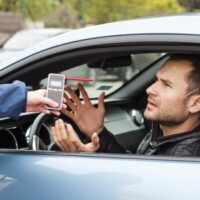Can A New York Driver Refuse To Take A Field Sobriety Test?

In the state of New York, there is a law known as an “implied consent law.” According to this law, once you get a driver’s license and begin driving on New York roads, you automatically consent to take a chemical test to determine your blood alcohol content when requested to take one. Refusing to take a breathalyzer test, for example, can result in an automatic suspension of your driver’s license and a fine of up to $500. These penalties are usually in addition to the DWI penalties should you be convicted of DWI. So, usually, it is best to take a chemical test when asked to take one.
But what about field sobriety tests? Can you refuse to take these tests without having to worry about facing penalties such as the ones associated with refusing to take a breathalyzer test? Simply put, yes. You can refuse to take a field sobriety test in New York without having to worry about facing civil penalties. In New York, refusing to take a field sobriety test does not carry civil penalties. Nevertheless, it is crucial to note that there are implications associated with refusing to take a field sobriety test.
Purpose of Field Sobriety Tests
Field sobriety tests are tests meant to determine if an individual is intoxicated. Usually, field sobriety tests are intended to test a driver’s coordination, reflexes, balance, and cognitive functioning. Also, field sobriety tests are used to determine if there is probable cause to administer a chemical test, such as a breathalyzer.
Police officers outside New York usually employ what are known as Standardized Field Sobriety Tests (SFSTs). These are three separate tests, namely;
- Horizontal gaze nystagmus
- Walk and turn
- One-leg stand tests
In New York City, law enforcement officers usually use field sobriety tests known as coordination tests during DWI stops. These tests also involve three separate tests, namely;
- Finger to nose
- One-leg stand
- Walk and turn
While law enforcement officers usually see field sobriety tests as a useful way of determining if someone is intoxicated, these tests are often a no-win for motorists. When stopped by the police, nervousness usually follows. When you are nervous, it is quite easy for you to perform poorly on a field sobriety test.
Is It Wise To Refuse a Field Sobriety Test?
Refusing to take a field sobriety test can either affect you positively or negatively. For example, if you are pulled over when you aren’t intoxicated, participating in a field sobriety test can help you defend yourself against any subsequent DWI charges. If you are drunk, taking such a test could lead to the establishment of probable cause to administer a chemical test or officers gathering evidence against you that they can use in court. On the other hand, even if you are not intoxicated, refusing to take a field sobriety test could be used against you to prove ‘consciousness of guilt.’ Generally, whether or not you should take a field sobriety test is never an easy call. But, if you refuse to take a field sobriety test, ensure you do so politely. Confronting an officer will only make matters worse for you.
Contact an NYC DUI/DWUI/DWAI Attorney
If you have any questions about New York field sobriety tests and chemical tests, contact the skilled NYC DUI/DWUI/DWAI attorney Mark I. Cohen at 917-414-8585 today.
Resource:
nhtsa.gov/sites/nhtsa.gov/files/documents/sfst_ig_refresher_manual.pdf
